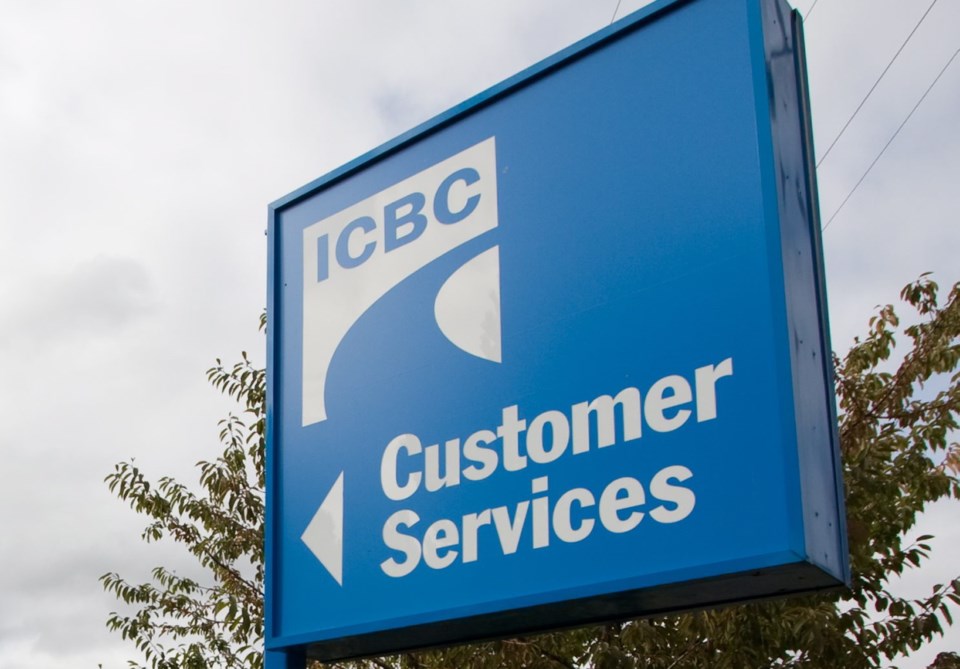The average B.C. driver will pay $57 more a year for basic car insurance as the new provincial government tries to dig ICBC out of “deep financial trouble,” Attorney General David Eby announced Tuesday.
The 6.4 per cent increase in the basic rate is lower than the 20 per cent hike recommended by Ernst and Young in a report commissioned by the former Liberal government, Eby said.
The overall optional rate will rise by 3.1 per cent in the first quarter with subsequent hikes to a maximum of 9.6 per cent, Eby said.
The blended basic and optional rate for the average driver will go up eight per cent or $130 a year.
ICBC lost more than $500 million last year — the largest loss in its history — and future losses are expected to increase to $1 billion in the next three years unless the government takes steps to deal with the problem.
“We need to take drastic action to fix ICBC’s devastating current financial situation, but B.C. drivers should not be made to pay for the mismanagement of this critically important public asset,” Eby said at a news conference.
He blames the problems, in part, on a 23 per cent increase in crashes since 2013. But he also accuses the former Liberal government of treating “ICBC like an ATM machine” and siphoning off $1.2 billion from the corporation’s savings since 2010.
“It’s my opinion that British Columbians were deceived about the true state of finances at our public auto insurer before the election,” he said.
The 2017 budget documents projected that ICBC would lose $25 million next year, but Eby said revised numbers project a loss of $454 million. “Even taking into account today’s rate increases, the projected loss at ICBC for next year is still $360 million,” Eby said.
“That’s 14 times the original loss projected in the budget 2017 documents that were released before the election. There is simply no excuse for the previous government’s projections being so wrong.”
Liberal critic Andrew Wilkinson, a former attorney general, was unavailable for an interview, but issued a statement attributing ICBC’s financial woes to a surge in accidents. “
“While the NDP seem intent on laying blame, the previous government took steps to keep increases affordable and stable for families,” the statement said.
He noted that the Liberals toughened drunk-driving laws, boosted penalties for distracted driving, doubled premiums on luxury vehicles and reduced the size of ICBC’s executive team.
Eby announced a number of short-term measures to deal with the problem, including:
• Activating 24-hour red-light cameras at high-collision intersections to reduce crashes. The cameras currently operate for only six hours a day, but will move to 12 hours and then 24.
• Launching a pilot project to test the use of new technology as a way to fight cellphone use by young drivers, repeat offenders and other high-risk groups.
• Increasing efforts to identify and fix dangerous roads and high-crash intersections.
• Ordering a business audit at ICBC to investigate the backlog of claims as well as settlement and litigation strategies and other issues.
Retired assistant deputy minister Richard McCandless, who has researched and written extensively about ICBC, said Eby’s short-term measures show “good intent,” but that it will take sustained effort to get ICBC out of trouble.
“The previous government knew this was happening and they chose not to do anything about it for their own reasons,” he said.
“To compound it, of course, they took some money out of the optional savings piggy bank that could have bought us a bit more time here to clean things up. … Plus they suppressed the true rate increase and that made the problem even worse, made the deficits bigger. So it just snowballed. It got completely out of control.”



